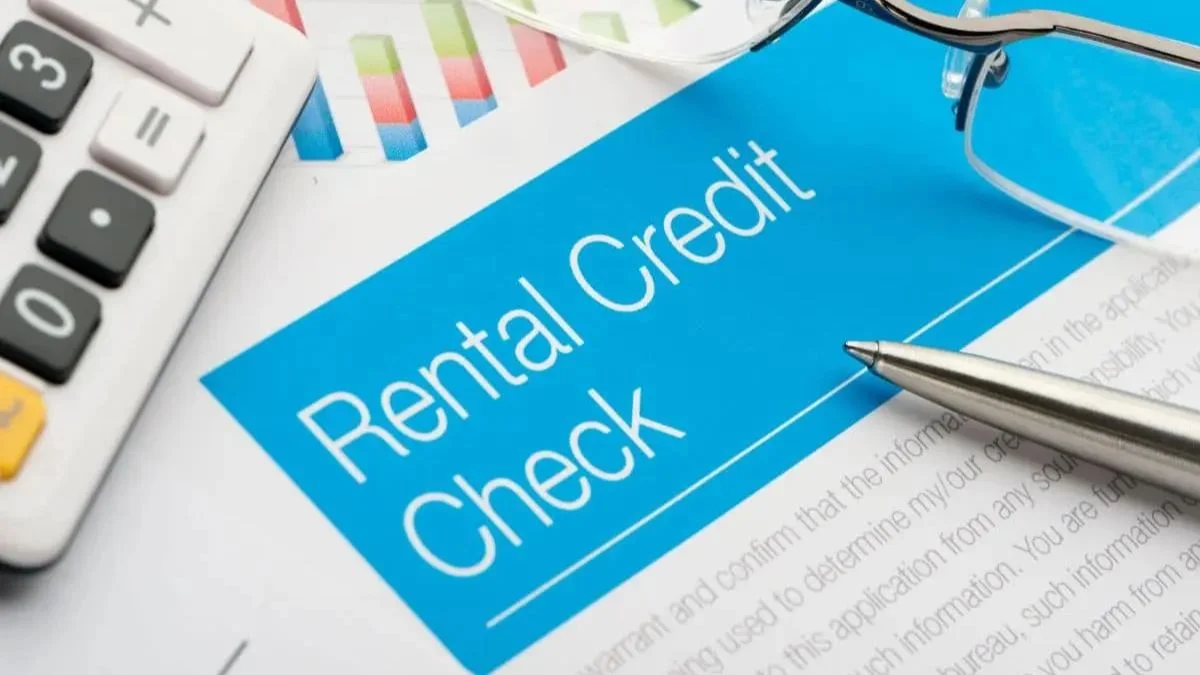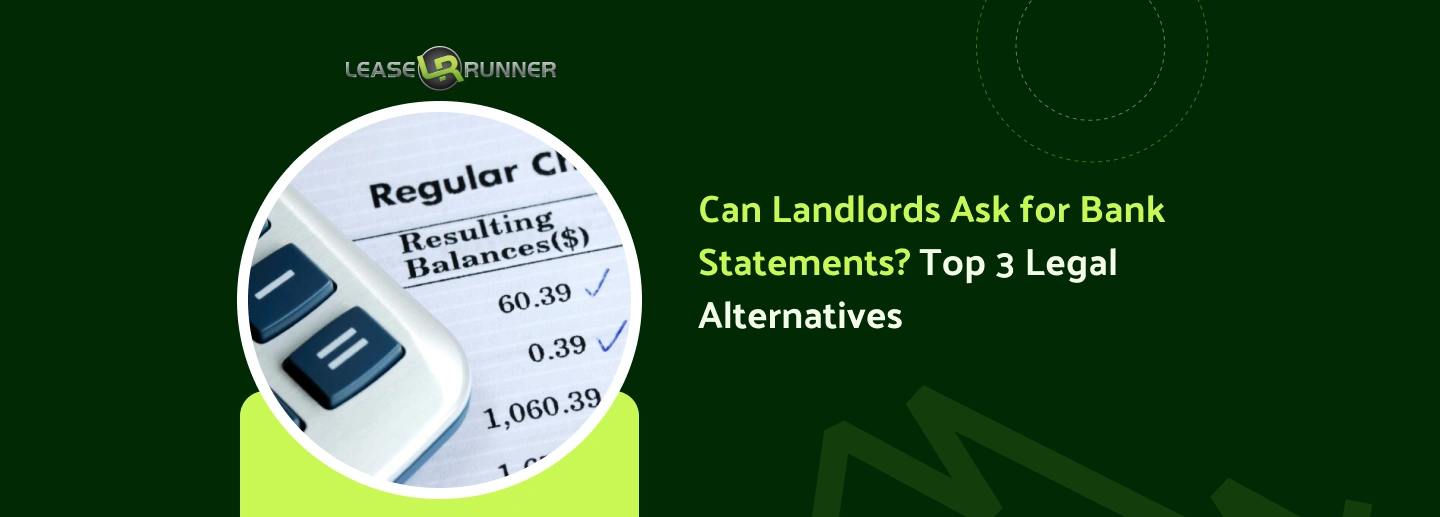It’s easier to rent a home when you know how to pass a rental credit check. This guide breaks it all down, what landlords check, how to boost your profile, and how to stay ahead in the process!
What Is a Rental Credit Check?

What is Included in a Rental Credit Check?
A rental credit check goes far beyond just your credit score. Landlords and property management companies typically review a detailed picture of your financial history to assess your reliability as a tenant. Here’s what is commonly included:
- Credit Score: Usually a FICO® Score or VantageScore ranging from 300–850. Many landlords look for at least 620–650. Learn more about what credit score is needed to rent an apartment.
- Full Credit Report: Lists all your credit accounts, balances, and credit limits. Shows your payment history, including late payments or defaults. Landlords focus more on recent payment patterns than minor old issues. Credit inquiries, showing recent loan or credit applications, are also included.
- Debt Amounts and Obligations: Total outstanding debts, such as credit cards, student loans, or personal loans, are reviewed. This helps landlords gauge your ability to pay rent alongside other financial obligations. For example, high monthly debt compared to your rent may reduce your approval chances.
- Public Records: Includes bankruptcies (Chapter 7 or 13), past evictions, and civil judgments or liens. Recent filings carry more weight. Evictions, even if cleared, can remain in tenant-screening databases and affect future rental applications.
- Patterns and Context: Landlords look for patterns of financial behavior rather than isolated numbers. This includes bankruptcies, past evictions, and civil judgments. Learn why accurate rental verification matters. Demonstrating consistent, timely payments is critical.
- Tenant Screening Services: Many landlords use services like income verification and cash flow reports from LeaseRunner to evaluate renters consistently.
Landlords use this information to assess risk and consistency. Paying bills on time, maintaining low credit utilization, and resolving any outstanding debts can greatly improve your chances of rental approval.
How Credit Check Results Impact Rental Applications for Landlords and Tenants
For landlords, credit results help predict whether rent will be paid on time. A high credit score or clean history may speed up approval, while missed payments, collections, or high debt can lead to extra questions.
On the other hand, for tenants, poor credit doesn’t always mean “no.” Many renters still succeed once they learn how to pass a rental credit check with preparation, proof of income, and strong references.
How to Pass a Rental Credit Check?

Passing a rental credit check can feel intimidating, but with preparation, you can increase your chances of getting approved. Here’s a detailed breakdown of practical steps tenants can take:
- Check Your Credit Report in Advance
Before applying for a rental, request a free copy of your credit report from the three major bureaus (Equifax, Experian, and TransUnion). Federal law allows one free report annually through AnnualCreditReport Look for errors like duplicate accounts or incorrect late payments, and dispute them if necessary. Fixing even small mistakes can raise your score and improve your profile.
- Pay Down Existing Debt
High balances can hurt your credit utilization ratio, a major factor in your score. Try to pay down credit cards to below 30% of your limit. For example, if your card limit is $1,000, aim to keep your balance under $300. Landlords prefer applicants who aren’t overextended financially.
- Make Timely Bill Payments
Payment history makes up 35% of your FICO® Score, so every on-time payment counts. Even one late rent fee can drop your score by 100 points. Setting up autopay for utilities, loans, and credit cards helps ensure consistency. Landlords view steady payment history as a sign of reliability.
- Provide Proof of Income and Employment
Most landlords want to see that your monthly income is at least 2.5–3 times the rent. Pay stubs, tax returns, bank statements or an employment verification letter are the proof of income that can help prove stability. For freelancers or gig workers, providing bank statements or 1099 forms demonstrates reliable income. Be cautious of fake pay stubs, which landlords often spot.
- Offer a Larger Security Deposit or Prepaid Rent
If your credit isn’t perfect, showing financial commitment upfront can reassure landlords. For example, paying two months’ rent in advance or offering a higher deposit reduces the landlord’s risk and increases your approval chances. - Have Strong References
Character and rental history references can make a difference, especially if your credit score is borderline. Previous landlords can confirm that you paid rent on time and took good care of the property. Professional references, such as managers or supervisors are part of how to pass a rental credit check even with weak credit.
- Write a Cover Letter Explaining Credit Issues
Life events like medical bills, job loss, or divorce can cause temporary financial setbacks. A short letter explaining your situation and how you’ve recovered shows responsibility. For example: “I experienced a layoff in 2022, which led to late payments, but I have since found stable work and have made all payments on time for the past 18 months.”
- Consider a Co-Signer or Guarantor
A co-signer or guarantor apartment with strong credit can reduce the landlord’s risk. This is common for students, young renters, or anyone with limited credit history. The co-signer agrees to cover rent if you default, making landlords more comfortable approving your application.
- Use a Tenant Screening Service Beforehand
Even with no credit history, you can prove stability by sharing utility bills, phone bills, or proof of savings. Using rent reporting services can also help build your score over time. Services like LeaseRunner let you run your own tenant screening report, including credit, criminal, and eviction history. By checking your record before applying, you’ll know exactly what landlords will see. Sharing your LeaseRunner report can also show transparency and initiative, making a positive impression on potential landlords.
- Maintain Financial Habits Beyond the Application
Passing a credit check isn’t just about getting approved once—it’s about maintaining credibility for future rentals. Keep debts low, build savings, and continue paying on time. This ensures stronger applications down the road and can even lead to better rental terms, such as a generous grace period on rent.
How Landlords Use Credit Checks?

This section breaks down what you’ll need for a credit check to rent an apartment, what landlords are looking for, and how to meet those requirements.
Rental Credit Check vs. Apartment Credit Check
Both terms mean the same thing: reviewing your credit during a rental application. Learning how to pass a rental credit check ensures you’re ready no matter what type of landlord you face. This process typically asks for these things:
- Your credit score (usually from one or more credit bureaus)
- A detailed credit report showing payment history, outstanding debts, and any collections or bankruptcies
- Possibly, credit inquiries from other recent applications
Some landlords may use a “soft” credit check, which won’t affect your credit score, while others use a “hard” check, which could result in a small, temporary dip in your score. Either way, it gives landlords a snapshot of how you handle financial responsibilities.
Common Credit Score Thresholds for Apartments
There’s no universal credit score you need to rent an apartment, but many landlords use certain ranges as a guide:
That said, smaller landlords may be more flexible than large property management companies.

As rental demand rises, so do rental scams. Landlords are often targeted just as much as tenants. One growing concern is fake credit reports or scammy tenant screening processes. When landlords rely on unverified information, they risk leasing to unqualified tenants or falling victim to identity fraud.
Fortunately, there are smart, simple ways to keep the rental process secure.
Types of Fake Credit Checks and Rental Scams
Scammers have gotten creative with ways to fake their credit standing or bypass legitimate screening.
- Doctored credit reports: Tenants may submit a PDF that looks official but was edited or generated using online templates.
- Fake credit check websites: Some applicants offer to “save time” by using their own credit report from a sketchy site that isn’t tied to any real credit bureau.
- Identity swapping: A scammer may apply under someone else’s name with stolen information or fake ID documents, trying to pass off a clean credit history.
- False references and employment details: Fake landlords or employers may be in on the scam or are created with burner phone numbers and fake emails.
These scams often target landlords who don’t have a consistent screening system or who rely too heavily on documents provided by the tenant. Scammers may seem urgent or overly helpful in the process to push you into skipping normal checks.
Use Verified, Secure Credit Reporting Services
One of the most effective ways to avoid scams is by using a reputable, secure tenant screening service like LeaseRunner. Our platform allows landlords to request a credit report directly from a trusted source, with the tenant's full consent.
Since LeaseRunner is built for rentals, it follows strict data protection standards to keep sensitive info safe. That means less risk of identity theft or bad data, and more peace of mind for both landlords and renters. Plus, for tenants, going through a professional service shows you’re serious, organized, and ready to make a solid impression.
Implement Multi-Factor Tenant Verification in the Screening Process
A strong tenant screening process doesn’t stop at a credit check. Adding multi-factor verification can help catch fraud early and ensure you're working with real, qualified applicants.
- Photo ID verification: Always request a clear copy of a government-issued photo ID (like a driver's license or passport), and verify that it matches the name, date of birth, and other personal details provided in the application. Consider asking to see the ID in person during a showing or virtual meeting when possible.
- Proof of income and employment: Require recent pay stubs, W-2s, or bank statements to verify income. For self-employed applicants, tax returns or 1099 forms can work as well. Take it a step further by calling the employer directly, but make sure to use a publicly listed company number rather than any contact info the applicant provides.
- Past rental references: Contact previous landlords to ask about the applicant’s payment history, behavior, and lease violations (if any).
- Cross-check info: Match the name, phone number, employer, and addresses across all documents. Inconsistencies may signal a red flag.
Conclusion
Now that you understand how to pass a rental credit check, it’s time to take action. Clean up what you can, get your paperwork ready, and go make your next move with confidence! By applying these strategies, you’ll not only know how to pass a rental credit check today but also in the future.
For more tips on renting smarter and improving your application game, check out the LeaseRunner blog!
FAQs
Q1. What credit bureau do apartments use?
Most landlords and property management companies check credit reports from one of the three major credit bureaus: Experian, Equifax, or TransUnion. Some may use only one, while others go through third-party tenant screening services that pull data from multiple bureaus. You typically won’t know in advance which one they’ll use, so it’s a good idea to review your reports from all three.
Q2. What do landlords look for in a credit report?
Payment history, credit score, outstanding debts, collections or charge-offs, and any past evictions or bankruptcies. Knowing these helps you plan how to pass a rental credit check. They’re essentially looking for signs that you’ll pay rent on time and manage your finances well.
Q3. Can I rent an apartment with bad credit?
Yes, you can still rent even with a low score. Many renters figure out how to pass a rental credit check by showing steady proof of income, providing strong rental references, using a co-signer, or offering a larger security deposit. These steps reassure landlords that you’re reliable despite past credit issues.
Q4. Do all landlords check your credit?
Not always. Smaller landlords or private owners might skip the credit check and focus more on your rental history, income, or references. However, most professional property managers do run credit checks as part of a standard background screening.
Q5. Which Credit Bureaus Do Landlords and Apartments Use?
Landlords and property managers typically check reports from one of the three major credit bureaus: Experian, Equifax, or TransUnion. Some tenant screening services pull data from all three to give a fuller picture. Because you usually won’t know in advance which bureau will be used, it’s best to review your credit reports from all three before applying.







